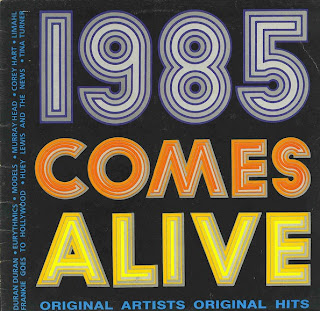is 2011 house's biggest year internationally since 1989-90 or whenever it was crystal waters was in the US top 10?
This is in reference to the myriad house genres and subgenres presently blossoming, from the various 'hipster house' sprouts of the 100% Silk-ilk and post-dubstep angles, to the house-y standard of established-underground generic minimal tech-house, to the dominance of house within contemporary chart pop. A quick scan of the FM dial confirms the latter, at least here in Australia, and given our complete reliance on following the trends of others and with it a complete inability to start trends of our own, I'll take this as evidence of conditions in the UK and US.
(*I'm always surprised at how much chart pop-house I enjoy - it's as though they understand certain underground traits better than the underground do, and with their mainstream musical proficiency and knack for using highfalutin' equipment, blow them up to absurd but nonetheless functional proportions)
This reminded me of chart music in 2000-2001, the year I first came to London, where everywhere I went I heard commercial house that I openly enjoyed. I'm not sure how then compares with now, but there seemed to be a lot of house in the air, and most of it fucking great. The following were inescapable:
Spiller feat. Sophie-Ellis Bextor 'Groovejet' - a friend of mine used to date her, apparently
French Touch maintained a gentle caress on the charts - Modjo's 'Lady'
... and Daft Punk 'One More Time' - their biggest hit
Black Legend 'You See The trouble With Me' - re-do of Barry White and Ray 'Ghostbusters' Parker Junior
Kylie Minogue 'Can't Get You Out Of My Head' of 2001, which put her in Madame Tussauds as the attraction's most fondled exhibit requiring an 'anal makeover'
Chicane 'Don't Give Up', featuring a vocodered Bryan Adams
Sonique 'It Feels So Good'
Fragma 'Toca's Miracle' - mash-up featuring vocal from Coco Star's 'I Need a Miracle'
Madison Avenue 'Don't Call me Baby' - Australian surprisingly, actually from late 1999 but it lingered
But it all ended with this. The inevitable conclusion of house, popular music and seasonal festivities?
2000 was also a turning point in music, with Napster contributing to a decline in sales, leading to singles spending less time at the summit. 2000 still holds the record for the year with most #1 singles in a calendar year (43) and also contains the longest run of consecutive one-week #1 singles. We know how it ended - the strange swill of flotsam and jetsam that defines contemporary music and listening habits.









